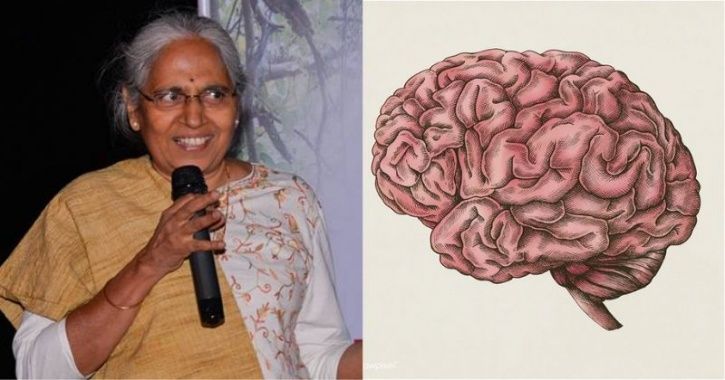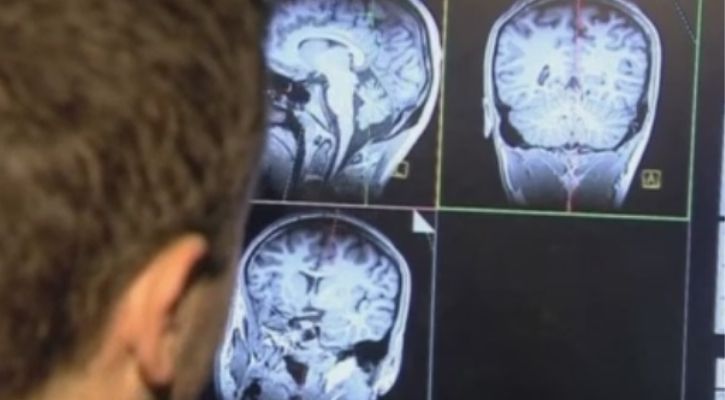- Joined
- Oct 23, 2013
- Messages
- 26,183
- Points
- 113
Indians Have The Smallest Brain In The World, Reveals New Study At IIT Hyderabad
Monit Khanna
Updated: Oct 30, 2019, 11:37 IST
11.9K SHARES
Researchers at IIT Hyderabad have created the world's first-ever Indian Brain Atlas, which is a fancy term to define a template for brains of people living in the Indian subcontinent.
This study has also revealed that the Indian brain is smaller in size, width and volume when compared to brain from the Western and Eastern populations.

FACECBOOK/IIT HYDERABAD/ RAWPIXEL
The research was published in the prestigious journal Neurology India-- a peer-reviewed journal. The brains working behind this brain atlas is of Jayanthi Sivaswamy (and her team) who is a part of the Centre for Visual Information Technology.
According to her the Montreal Neurological Institute template, which is considered as a standard across the globe (created using brains of the caucasian population) is not ideal to decipher the brain differences in Indian population.
Jayanthi said in a statement to TOI, "As Indian brains are smaller in size when compared to MNI, the difference in scans can look alarming and lead to misdiagnosis. There is clear evidence based on the study that it is desirable to build a larger atlas as it is important to understand structurally what is normal. This would help catch several brain conditions early on."
She also mentioned that while brain templates for even Chinese and Korean population exist, they are different from the Indian brain dimensions.
The team at IIT Hyderabad has created India-specific templates taking data from 50 individuals, balanced perfectly between males and females.
She says, "MRI scans of these subjects' brains were taken at three different hospitals across three different scanners to rule out variations in scanning machines. Emboldened by the results of the pilot study, we went on to recruit 100 willing participants in the eventual construction of the atlas, referred to as IBA 100.

REPRESENTATIVE IMAGE: REUTERS
She also spoke about considerable differences in brain dimensions, "These differences in height, width, and volume are found even at the structural level, such as in the volume of the hippocampus and so on. But overall, IBA 100 is more comparable with Chinese and Korean atlases than the distant Caucasian one (MNI)."
The researchers will take the help of these brain scans and try deciphering the mysteries for solving incurable brain-related problems like Alzheimer's and dementia as they are connected to the occurrences in the hippocampus.
Monit Khanna
Updated: Oct 30, 2019, 11:37 IST
11.9K SHARES
Researchers at IIT Hyderabad have created the world's first-ever Indian Brain Atlas, which is a fancy term to define a template for brains of people living in the Indian subcontinent.
This study has also revealed that the Indian brain is smaller in size, width and volume when compared to brain from the Western and Eastern populations.

FACECBOOK/IIT HYDERABAD/ RAWPIXEL
The research was published in the prestigious journal Neurology India-- a peer-reviewed journal. The brains working behind this brain atlas is of Jayanthi Sivaswamy (and her team) who is a part of the Centre for Visual Information Technology.
According to her the Montreal Neurological Institute template, which is considered as a standard across the globe (created using brains of the caucasian population) is not ideal to decipher the brain differences in Indian population.
Jayanthi said in a statement to TOI, "As Indian brains are smaller in size when compared to MNI, the difference in scans can look alarming and lead to misdiagnosis. There is clear evidence based on the study that it is desirable to build a larger atlas as it is important to understand structurally what is normal. This would help catch several brain conditions early on."
She also mentioned that while brain templates for even Chinese and Korean population exist, they are different from the Indian brain dimensions.
The team at IIT Hyderabad has created India-specific templates taking data from 50 individuals, balanced perfectly between males and females.
She says, "MRI scans of these subjects' brains were taken at three different hospitals across three different scanners to rule out variations in scanning machines. Emboldened by the results of the pilot study, we went on to recruit 100 willing participants in the eventual construction of the atlas, referred to as IBA 100.

REPRESENTATIVE IMAGE: REUTERS
She also spoke about considerable differences in brain dimensions, "These differences in height, width, and volume are found even at the structural level, such as in the volume of the hippocampus and so on. But overall, IBA 100 is more comparable with Chinese and Korean atlases than the distant Caucasian one (MNI)."
The researchers will take the help of these brain scans and try deciphering the mysteries for solving incurable brain-related problems like Alzheimer's and dementia as they are connected to the occurrences in the hippocampus.


